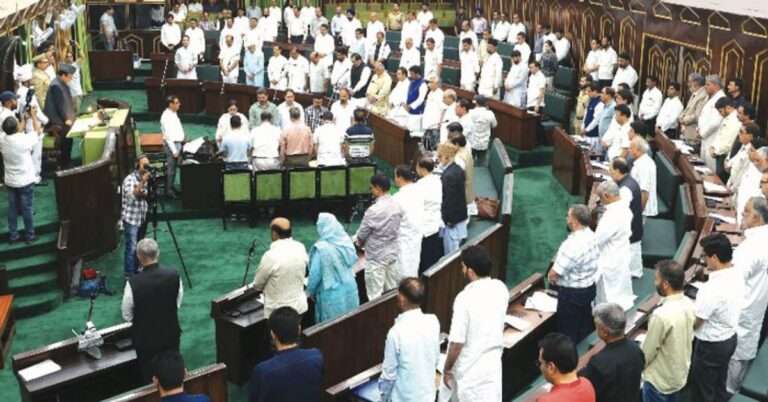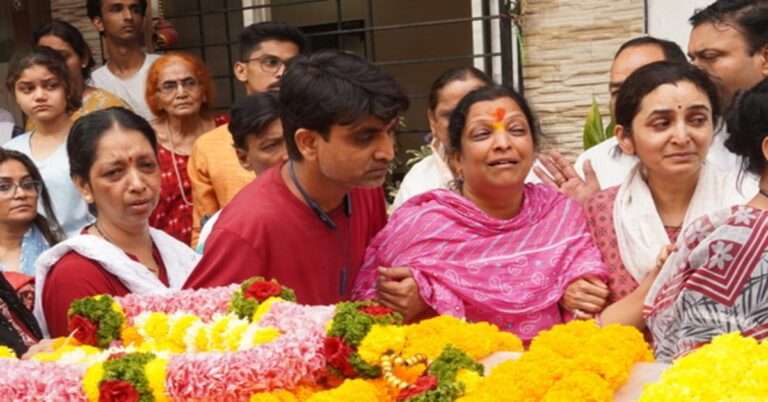
"Gujarat HC Allows Demolition of Illegal Construction at Chandola Lake, Rejects Muslim Party's Petitions"
Blog Post Title: “Understanding the Gujarat HC’s Decision on Illegal Construction at Chandola Lake”
Have you ever wondered what happens when illegal constructions come up in public spaces? Recently, the Gujarat High Court made a significant decision regarding the demolition of illegal constructions at Chandola Lake, rejecting petitions from a Muslim party. Let’s dive into the details of this case and understand the implications of the court’s ruling.
Chandola Lake, located in Ahmedabad, is a serene body of water that serves as a recreational hub for locals. However, over time, illegal constructions started cropping up around the lake, encroaching on public space and disrupting the natural beauty of the area. The Gujarat HC’s decision to allow the demolition of these illegal structures is a step towards reclaiming the sanctity of Chandola Lake.
The court’s ruling comes as a victory for environmental conservation and public welfare. By upholding the law and ordering the removal of illegal constructions, the Gujarat HC is sending a strong message that encroaching on public spaces will not be tolerated. This decision sets a precedent for holding individuals and parties accountable for unauthorized development and preserving the integrity of public amenities.
The petitions filed by a Muslim party in opposition to the demolition of the illegal constructions were rejected by the court. This decision underscores the importance of upholding the rule of law and ensuring that public spaces remain accessible to all without unauthorized interference. It also highlights the need for adherence to legal guidelines and regulations to prevent encroachments on public property.
The case of illegal constructions at Chandola Lake is a stark reminder of the challenges faced by authorities in maintaining public spaces and safeguarding the environment. It raises questions about accountability, responsible development, and the balance between urbanization and conservation. How can we ensure that public spaces are protected from unauthorized constructions? What measures can be taken to prevent such encroachments in the future?
In a rapidly urbanizing landscape, the preservation of natural resources and public amenities becomes vital for the well-being of society as a whole. The Gujarat HC’s decision to allow the demolition of illegal constructions at Chandola Lake reflects a commitment to upholding the law and safeguarding public interest. It serves as a reminder that everyone has a role to play in preserving our shared spaces for future generations.
As we reflect on the implications of the court’s ruling, it becomes clear that the protection of public spaces requires collective effort and vigilance. Individuals, communities, and authorities must work together to ensure that public amenities are safeguarded from unauthorized encroachments. By adhering to legal norms and regulations, we can create a more inclusive and sustainable environment for all.
Moving forward, let us strive to protect and preserve our public spaces for the benefit of present and future generations. Let us cherish the natural beauty of places like Chandola Lake and work towards creating a harmonious balance between development and conservation. Together, we can build a more inclusive and sustainable society where public spaces are valued and protected for years to come.
In conclusion, the Gujarat HC’s decision on the demolition of illegal constructions at Chandola Lake serves as a reminder of the importance of upholding the rule of law and protecting public spaces. By addressing unauthorized encroachments and promoting responsible development, we can create a more sustainable and inclusive environment for all. Let us learn from this case and strive to preserve our natural resources and communal spaces for the benefit of society as a whole.




